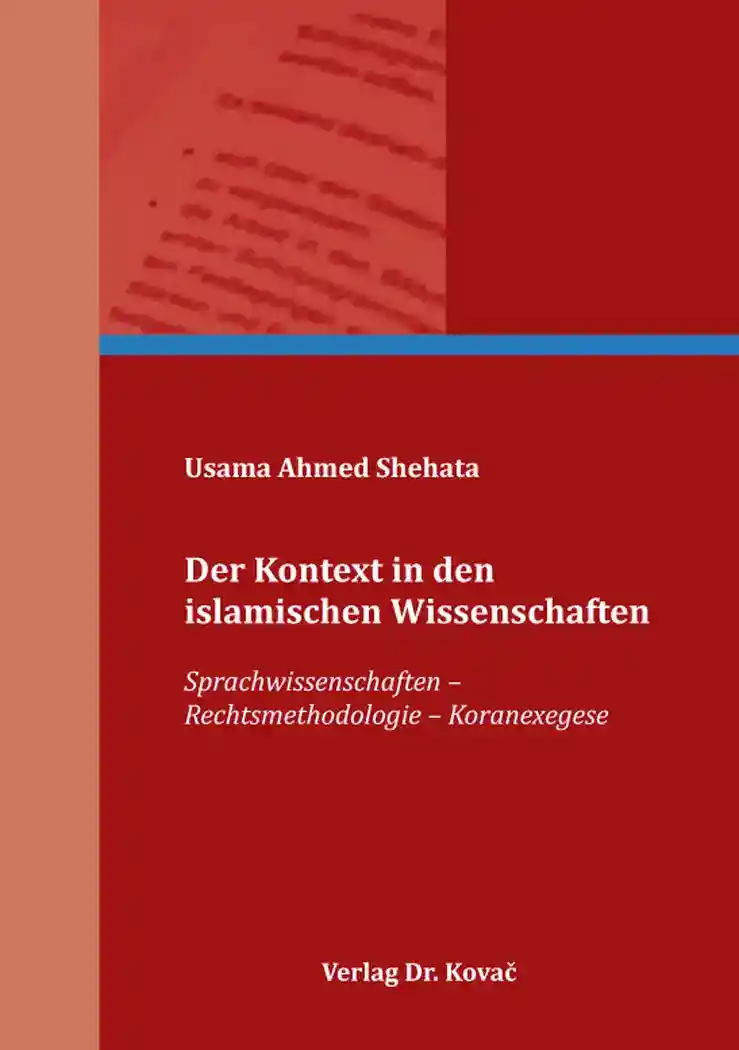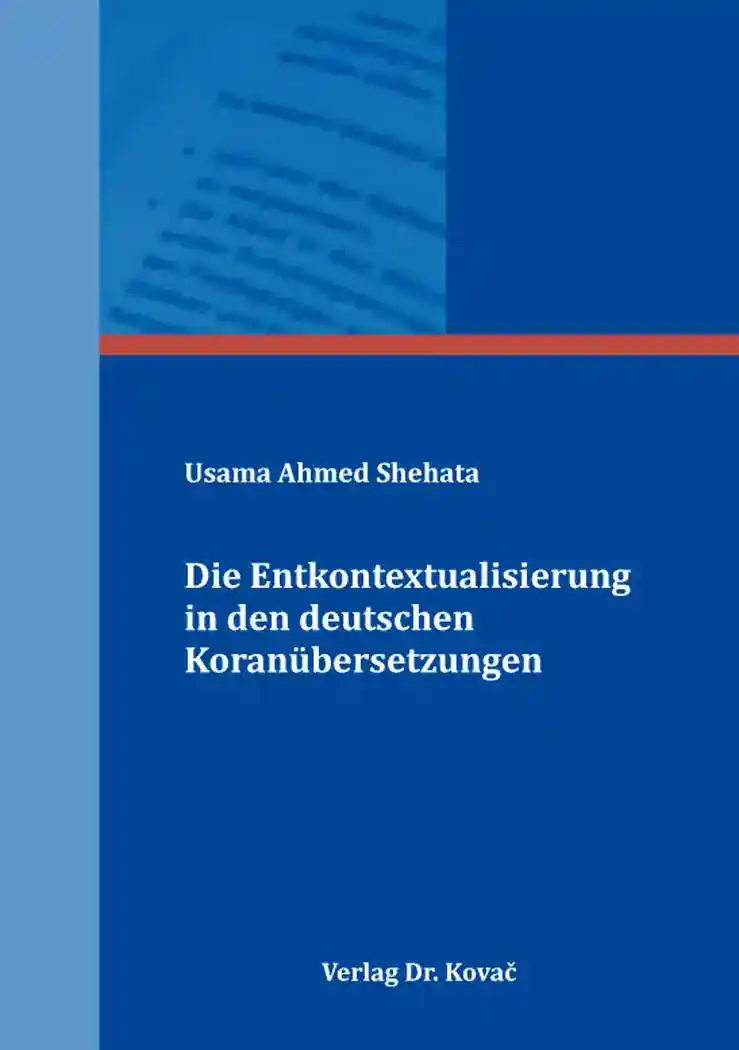Usama Ahmed ShehataDer Kontext in den islamischen Wissenschaften
Sprachwissenschaften – Rechtsmethodologie – Koranexegese
ﻧﻮﺮ ﺍﻠﺤﻜﻤﺔ Nur al-hikma
Licht der Weisheit. Interdisziplinäre Schriftenreihe zur Islamwissenschaft, volume 16
Hamburg 2020, 196 pages
ISBN 978-3-339-11658-1 (print)
ISBN 978-3-339-11659-8 (eBook)
About this book deutschenglish
This work deals with the importance of the linguistic and non-linguistic contexts in the main disciplines, through which the meaning or rather the lexical, grammatical, rhetorical, etc. meanings of the Quranic text are revealed. These disciplines are mainly lexicography, grammar, rhetoric, principles of the Islamic jurisprudence and exegesis of the Quran.
Arab lexicographers, for example, interpreted lexemes linguistically through their synonyms or antonyms as well as by reflecting on their metaphorical aspects. They explained them non-linguistically against thier sociological background.
With regard to the linguistic context in grammar, the main and secondary declination signs are of great importance for determining the subject and the object in a sentence. The non-linguistic context determines the correspondence between the linguistic construction and the external fact, which in turn is divided into five classifications, with regard to congruence and absurdity.
The „linguistic context“ was referred to in rhetoric as “textual composition“ and the „non-linguistic context“ as „the agreement with the requirements of the speaking situation“. The famous saying of the Arab rhetoricians: „There is a coherent statement for every situation“ shows how important the situation and the resulting statement is.
In methodology „the context of the textual order“ was used as the „linguistic context“ and „the accompanying relationships“ as the „situational context“. In the context of the textual order, the expressions are classified according to their clarity levels, their ambiguity levels, their generality as well as their specification and meaning, and each level has been classified and discussed accordingly. As for the situational context, the speaker’s situation, the addressee’s situation and the reasons for the revelation have been examined respectively.
In this study, in Quran exegesis, the areas of phonetics (Quranic readings), morphology, lexicography and grammar have been treated as components of the linguistic context, while the elements of the non-linguistic context which have been dealt with are: speech, the reasons for the revelation and the Meccan and Medinan Quran passages.
Keywords
Interpretation des KoranIslamIslamische RechtswissenschaftIslamwissenschaftKontextKoranexegeseKoranwissenschaftMethodenlehreRechtsmethodologieReligionswissenschaftSprachwissenschaftYour book at Dr. Kovač Publishing House
Weiteres Buch des Autors
Die Entkontextualisierung in den deutschen Koranübersetzungen
Hamburg 2020, ISBN 978-3-339-11656-7 (Print) | ISBN 978-3-339-11657-4 (eBook)

